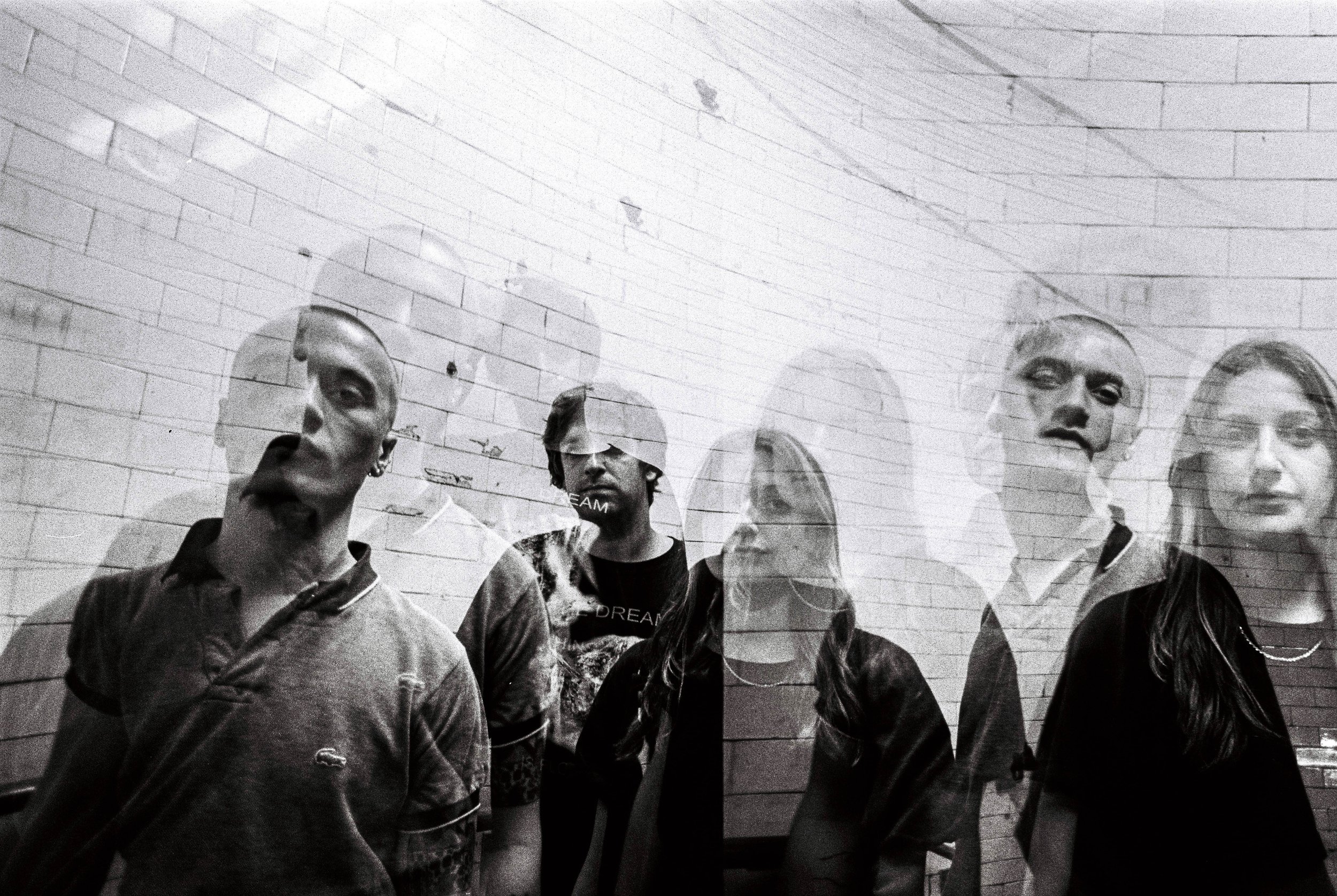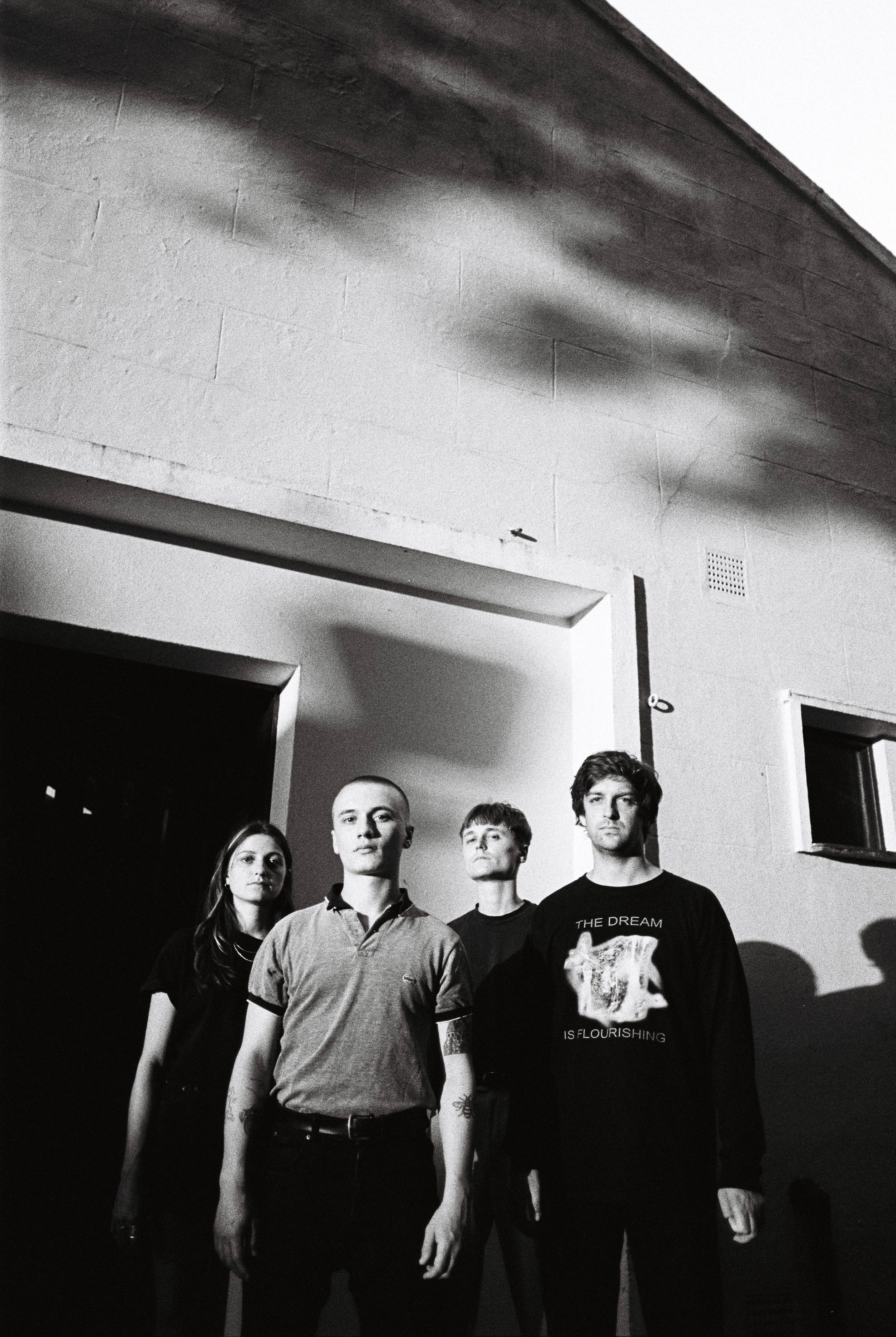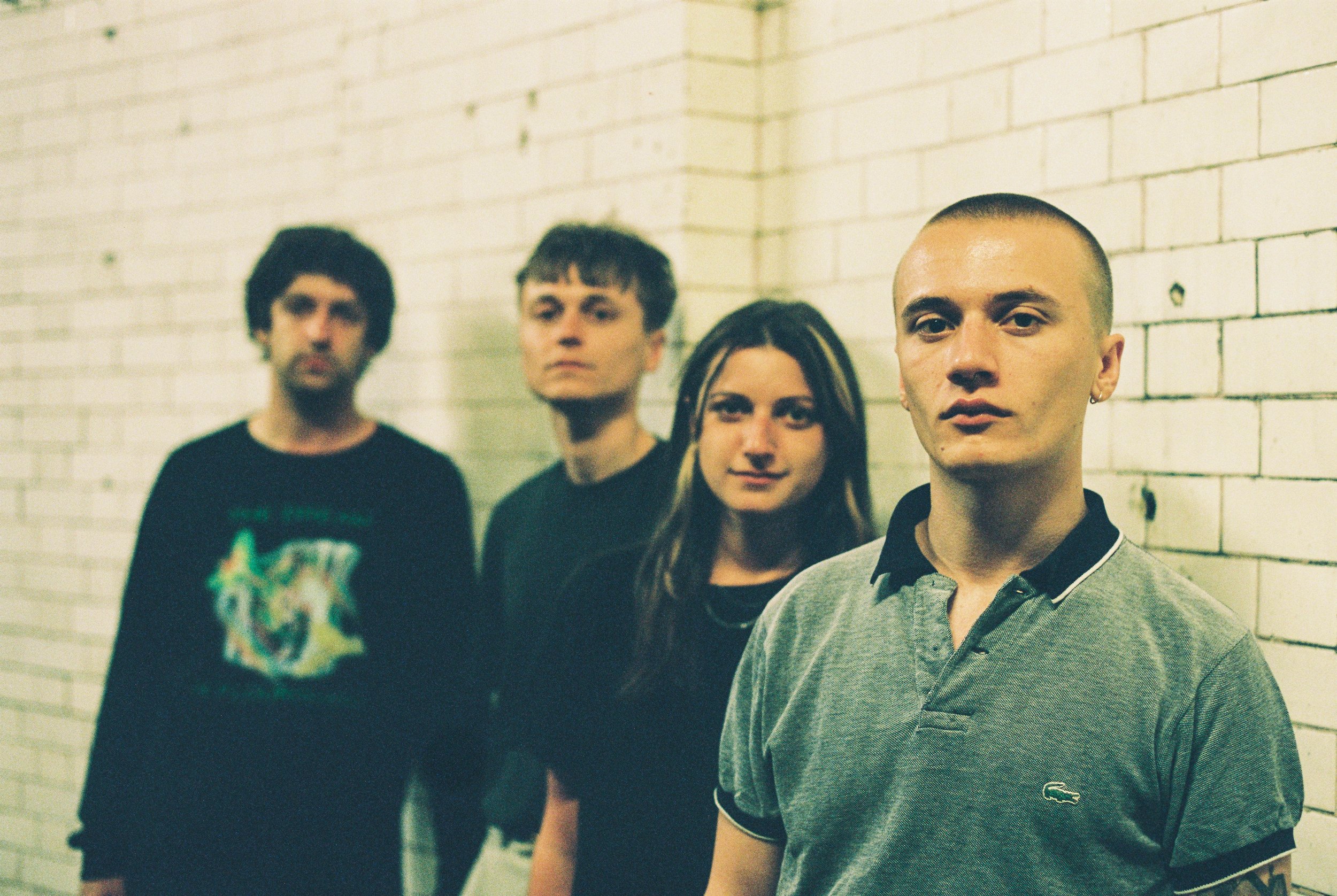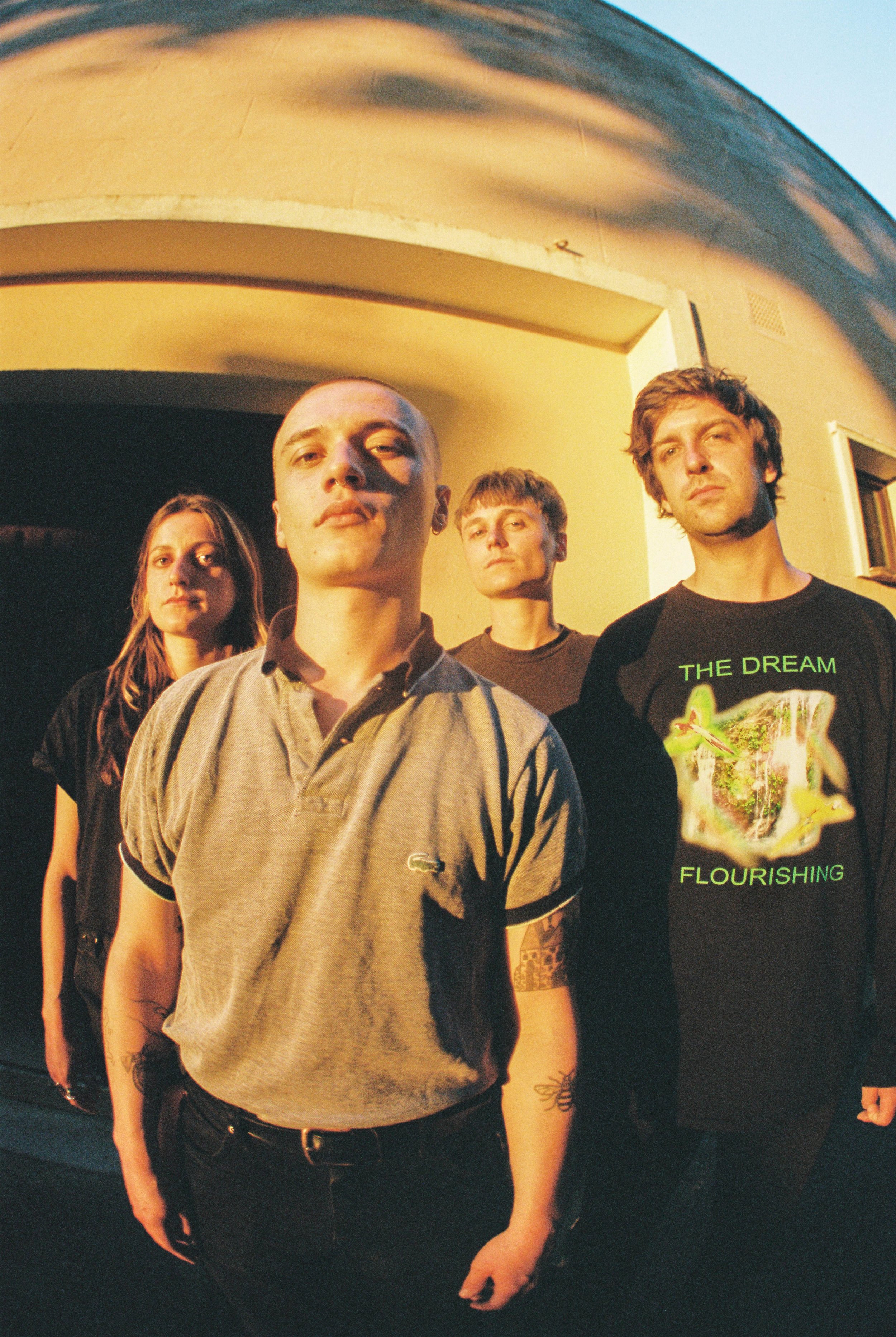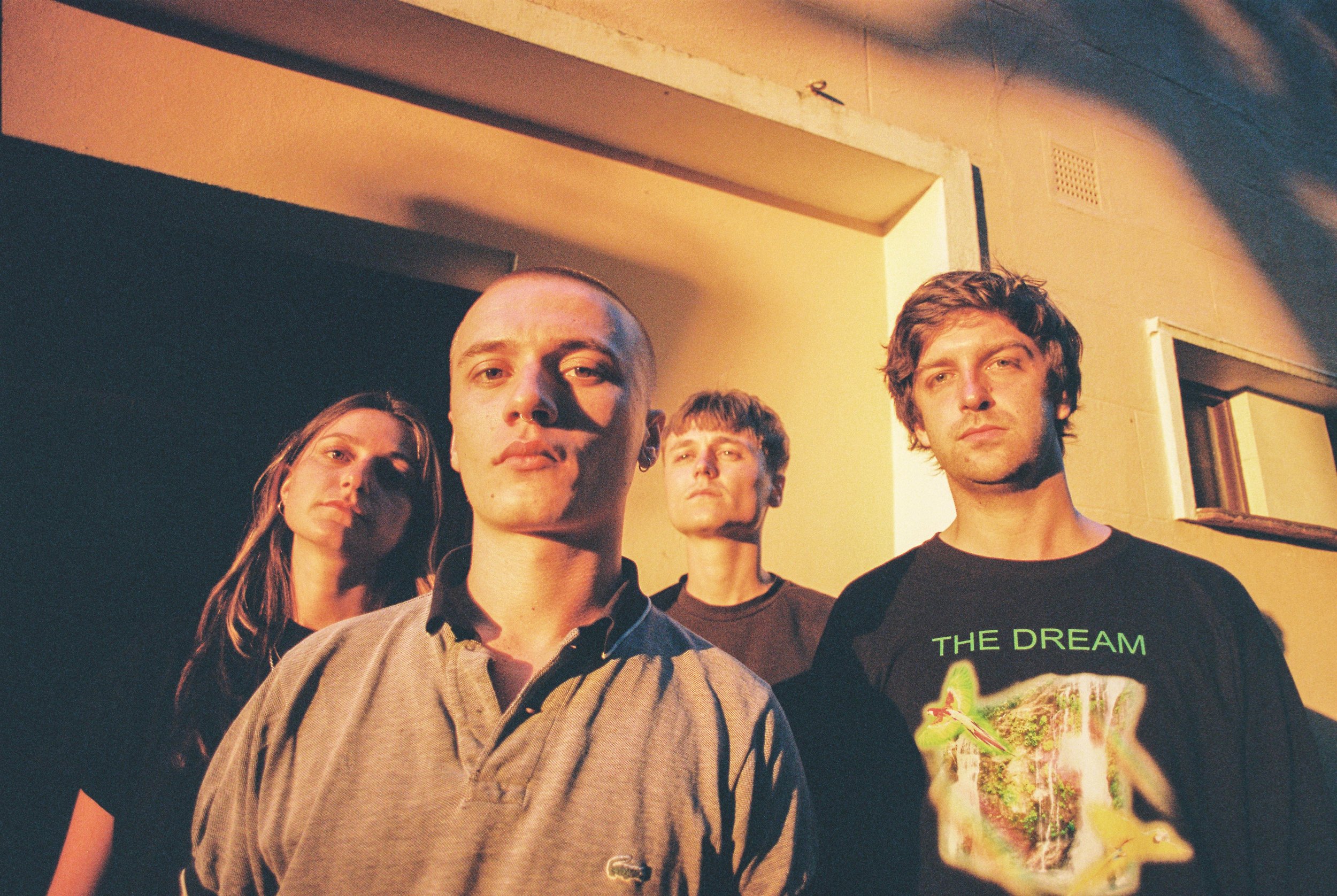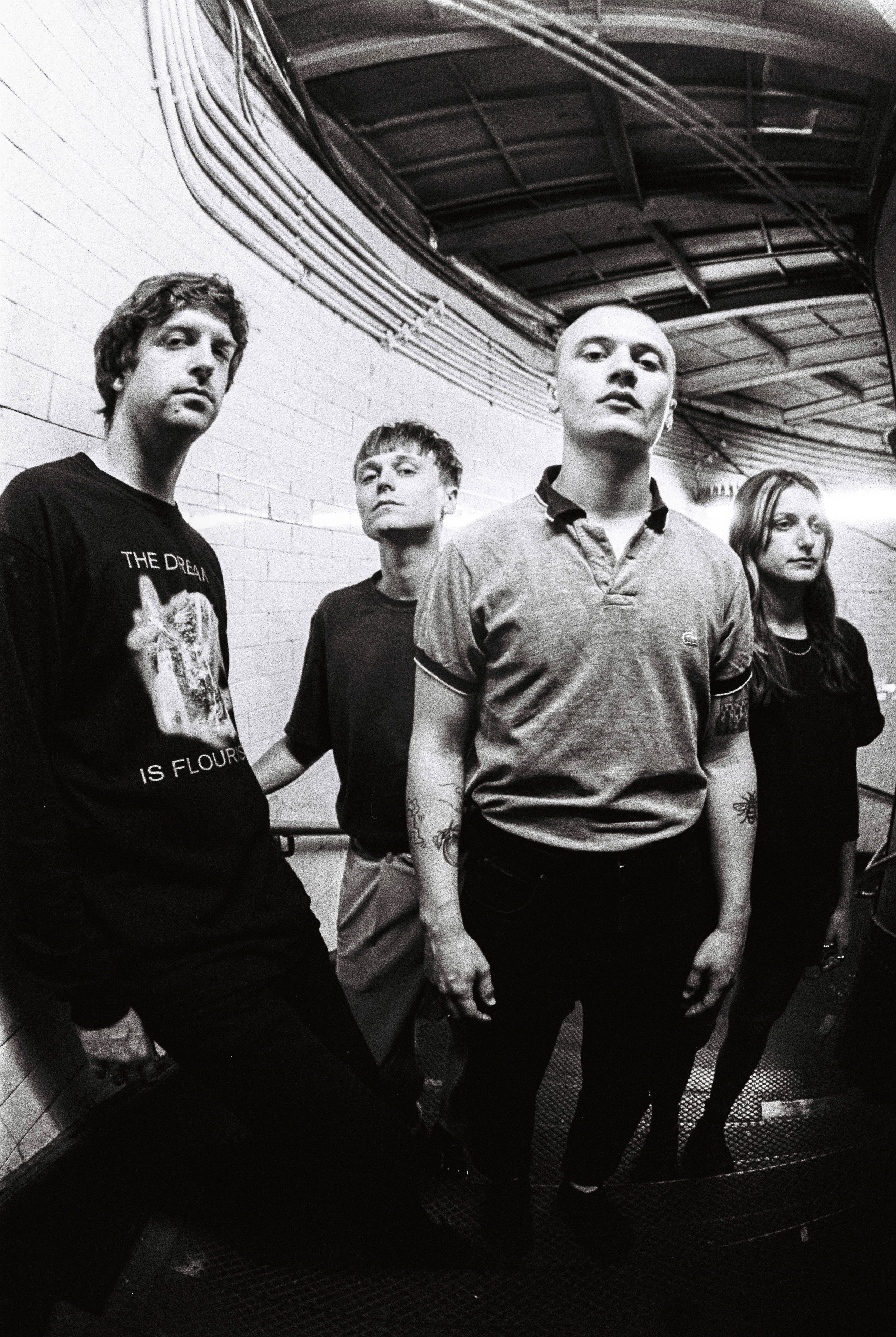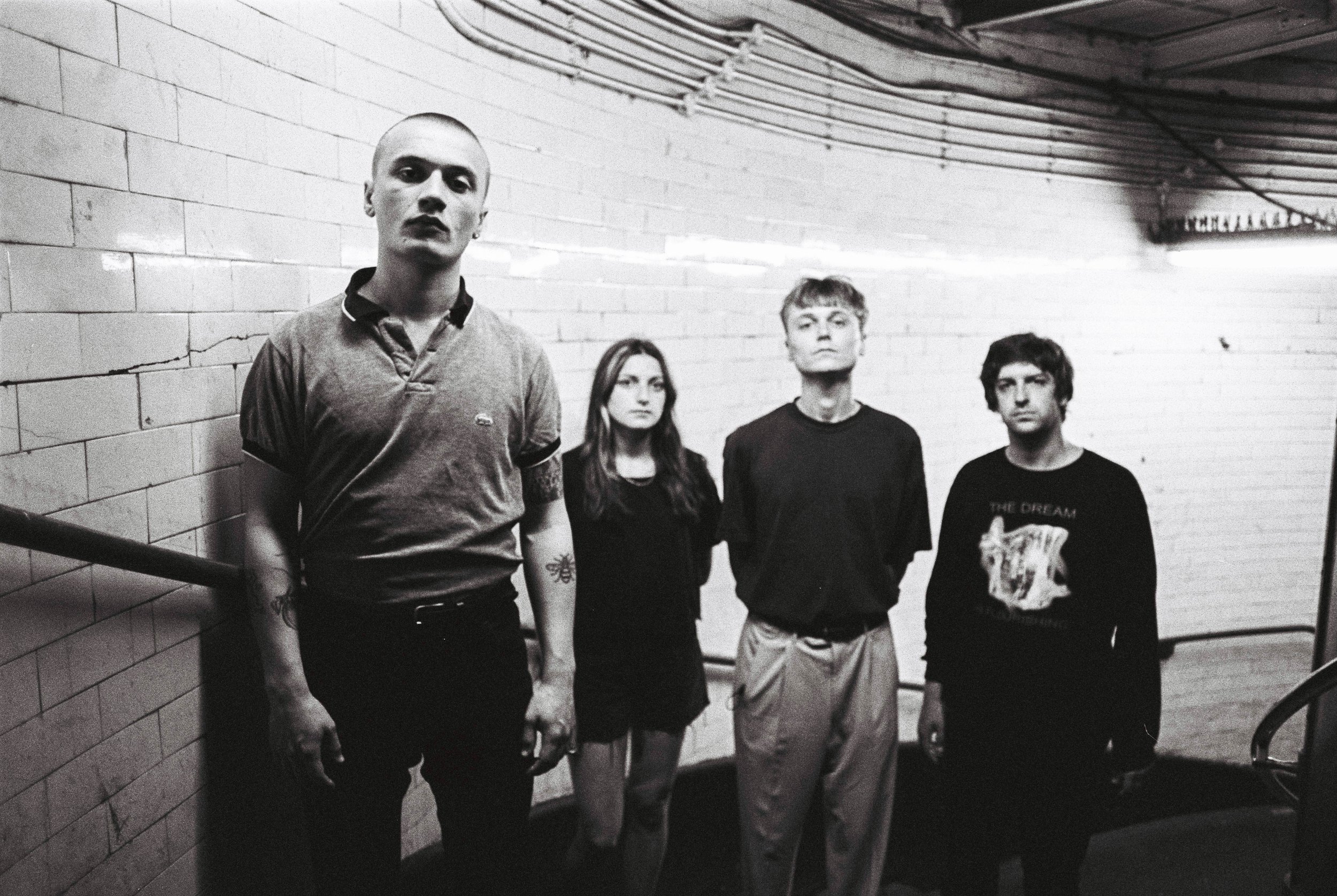Click Image to Download!
Just before Christmas 2021, Talk Show played a midnight festival gig in Amsterdam to a crowd who didn't know their music and had no idea who they were. "I was expecting people to be there scratching their chins," says guitarist and vocalist Harrison Swann, "but from the very first note we hit it just went berserk. I was like, 'oh shit, this is why I do this, this is it".
The wild audience response was a euphoric lift for the London-based four-piece (Harrison, guitarist Tom Holmes, bassist George Sullivan and drummer Chloe MacGregor met as students at globally renowned arts university Goldsmiths College) after two years of stop-start frustration thanks to Coronavirus – the first lockdown began the same week they released their debut EP, These People, in 2020. "It was hard to keep motivation up and keep morale high" Harrison reflects, "it was fucking tough". Yet canceled gigs led to more time for Talk Show to get into the studio, to become ever more focussed, to develop what Harrison describes as their "obsession" with getting it right. "That's the only thing that could get us through".
The enforced time away also pushed the band into taking the radical decision to scrap the music they'd already spent a year writing, and take a new direction. Chloe believes it's indicative of the way that the pandemic has forced many of us to pause, take stock, and examine where we are in life with a new perspective. "I didn't want to come out of Covid and pretend to be the same band, because we were never going to be" says Harrison. "We'd pigeonholed ourselves already," says Chloe of their earlier material, "but realized that we didn't have to do that".
The band expanded their musical horizons and inspirations beyond the new wave and post punk that had shaped the tracks on These People, delving into old soul records, electronic music, DJ sets on Boiler Room, MF Doom and the Beastie Boys, though Elvis Presley, whom they initially bonded over, remains a firm favorite. Perhaps the biggest influence on their new direction was the desire to bring their love of the sort of 90s dance music made by the Chemical Brothers into the Talk Show sound. This can most clearly be heard on “Trouble”, their recent collaboration with Eli Brown, which sounds like peak period Second Toughest In The Infants-era Underworld. It came from the band, according to Harrison, asking themselves a simple question: "how do we make this dance music that sounds fucking massive, but make it on guitars?”
Talk Show began to write with a more collective approach, rather than building from Harrison's lyrics, or a guitar riff. Punishing all-day sessions akin to their own private raves made the music feel more physical, punchier – arriving at the Premises rehearsal studio on Hackney Road one day, they were surprised to see a mark next to their name. This, they were told, was because their sessions were so loud they needed to be given rooms away from everyone else. Chloe says that the Eli Brown collaboration had a big impact, not least in how she had to play the drums as Talk Show indulged in a spot of "reverse sampling" – hearing breakbeats and rhythms in dance music, and trying to play them live. Yet as the tracks that would make up the Touch The Ground EP developed, it gave more space for Harrison to push the boat out with his distinctive vocal delivery and delight in wordplay. Much of the lyrical inspiration comes from slogans seen on adverts on public transport journeys around London. "They're catchy and snappy, therefore they'll be good lyrics, so I'm going to nick it! We've got a line "one hot hit" in a new song, the other day Chloe came up to me and asked 'did you nick that from the billboard for the Frozen musical?'" Harrison likes the cheekily subversive act of removing slogans from their corporate context, and how well the "short, sharp phrases" repetition to create a mantra is the perfect match for Talk Show's hybrid dance music.
The band took the demos of their new material into the Hackney studio of Joe Goddard and Al Doyle of Hot Chip, located in a former slaughterhouse. It was an open-minded collaboration, the band excited by working with electronic music legends, and wanting to be encouraged to push their sonic boundaries. "They want to have fresh takes and fresh ideas," says Chloe, "I don't know if before we'd necessarily have done that". The intro and outro tracks on the new EP are rich yet lo-fi after the Hot Chip duo encouraged the band to improvise. Once the core tracks were down, George explains, they thought "sick, let’s get all of the toys out, let's really try some stuff out – the outro track was a 15-minute ambient jam, they turned the lights out, we were all in different rooms with different stuff. We had so much fun making that".
The result is Touch The Ground, a six-track record that puts the burners underneath the post-punk sonics with which Talk Show had started to make their name before the pandemic hit. “Cold House” reflected their desire to take the inspiration of The Rapture's House of the Jealous Lovers and "make something that just let it rip." “Leather” was the last song they wrote and what they describe as the EP's "dark horse", originally intended to be two tracks but became one feral, slavering beast – Chloe writing the drum pattern was what formed the foundation of their new direction, brimming with confidence.
The band see ‘Touch The Ground’ as a celebration of their decisions to be bold: "we thought if we scrap the old stuff the new stuff better be fucking good otherwise we're fucked,” Harrison says. ”On the final day I remember walking out and thinking that was the most fun I've ever had, and we've absolutely made the right decision and this is the direction we're going in. This is it now, no more stop and start, this is where the train is heading and we're not stopping". Now the plan is to continue where they left off from the Hot Chip sessions, pushing for harder, louder, more industrial and dance floor-focussed music. "That's why it's called Touch The Ground, I wanted it to be like when a sprinter is crouching and ready to start a race," Harrison says, "it's the start of something – rooted, but looking upwards".


